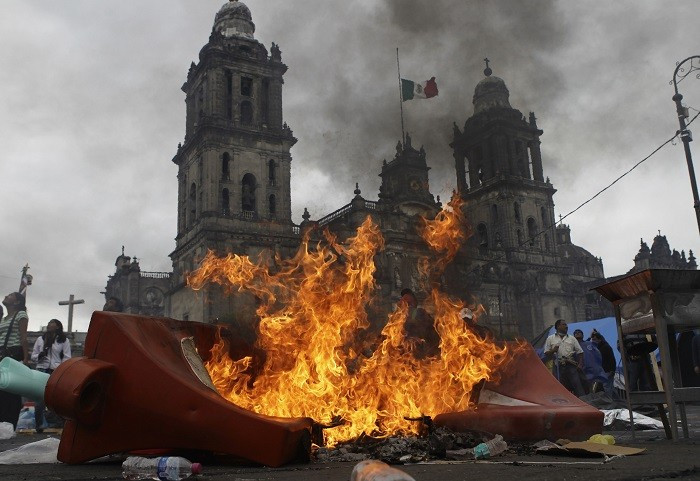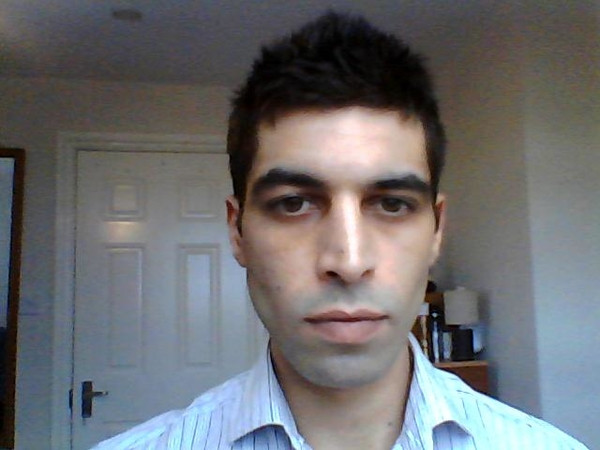A Londoner's ordeal in Sudan's torture dungeons

Magdy el-Baghdady, a 30-year-old man from London, had a grand plan.
In early 2011 he travelled to Sudan to open a small restaurant to help support his ailing father. He knew a few well-connected people in Khartoum with whom he had gone to school in north London. It all made sense at the time.
But then, it went horribly wrong.
Two weeks after his plane landed, he was languishing in a prison cell, bearing the marks and scars of torture.
Despite his ordeal Magdy is lucky. He is now safely back in the UK, fighting a legal battle against the Sudanese state.
He is arguing that Sudan violated the prohibition of torture under the African Charter and is using the Convention against Torture – adopted three decades ago this year – to do it.
Madgy's story illustrates why the Convention against Torture is crucial in the fight for justice for thousands like him. The document provides a clear definition of what torture is and sets out the obligations that state parties have to end it.
Even though Sudan has yet to ratify it, it has an obligation under international law to bring those responsible for torture to justice and Madgy is attempting to ensure it does just that.
'Israeli spy'
Soon after arriving in Khartoum on 27 January 2011, Magdy found himself in the wrong place at the wrong time. Little did he know that protests which had begun in Egypt a couple of days earlier were going to transform the political landscape of the region – and his life.
The protests in Egypt were seen by many as an opportunity for justice but the Government of Sudan saw them as potential threat to its rule.
Madgy remembers his arrival in Khartoum with a smile but the pleasant days didn't last long.
On the evening of 14 February, he was cooking chicken and beans for dinner at his rented flat in the Sudanese capital when 20 armed men kicked his door down and stormed in. Shouting at Magdy in Arabic, a language he could not understand, he was blindfolded, shackled and taken away.
Only later did the young man realise he was being taken to the offices of Sudan's infamous National Intelligence and Security Services (NISS).
"At the time I didn't know what to do. I was shocked. For a long time I thought the whole thing was a joke, that everything would be cleared up quickly," he said.
Questioning began as soon as he arrived at the NISS's headquarters. They accused him of being a spy for the Israeli government and an activist who was fomenting revolution in Sudan.
"For a long time I thought the whole thing was a joke, that everything would be cleared up quickly."
"They kept people held there blindfolded and shackled by the feet nearly the whole time. There was no food or water. The cell was very small and extremely hot and they would only bring us a mouthful of water now and then," Magdy explained.
He spent eight days in the cells of the intelligence services' building. His relatives did not know where he was and there was not a lawyer in sight.
Then he was transferred to Kober Prison, notorious for its brutal methods of interrogation.

Hidden
Intelligence officers had only one thing in mind. They wanted him to confess to being a spy. And they were prepared to do anything to achieve their goal.
"I had bruises everywhere. There was no way to defend myself because I could not see who was hitting me, I could only hear them. They would only stop when they got tired. One time they beat me so badly I was not even able to walk afterwards, they even broke some of my teeth," he said.
Magdy was held in a tiny two-by-three metre cell with several other men, also accused of being activists or spies.
"Officers would come with big [plastic] pipes. I remember there were two children [there], maybe 16 or 17 years old and they beat them in front of everyone for a long time until these kids defecated" he explained. "That is very difficult to watch, a child being beaten by a grown man to the point where they start bleeding. There was no remorse, they did not hold back.
"When people were taken away for interrogation, they would come back in a terrible state. In those situations I didn't know what I was supposed to do, how to help them. Some guys were bleeding, some even from the anus."
Magdy spent eight months in prison, not knowing if he would ever see the world again. Then one day, as he was sitting on the floor of his small cell, back against the wall, a guard came in and without warning or an explanation, just said: "You are free to go".
He spent the following two months with his friends, trying to recover.
"By the time I came out I had lost a lot of weight. I was not able to sleep or eat. For months I had to take sleeping pills and stayed in one room."
Luckily, as a British citizen, Magdy could rely on the help of a foreign government to assist with his release. With aid from the British embassy in Sudan, he was eventually allowed to leave the country and fly back to the UK on 30 December 2011.
"I was very relieved to be home, to be in a safe environment. But I could not help feeling bad for the people who were still there."
Since being back, he has been working to help bring to light the widespread use of torture in Sudan.
He is now fighting a case against the Sudanese State, together with the international human rights organization REDRESS, for those responsible for his torture to be brought to justice.
The case is pending before the African Commission on Human and Peoples' Rights – Africa's main human rights body – who is reviewing the claims after the Sudanese state failed to investigate Magdy's complaint about his torture.
Magdy doesn't have high hopes for justice, but he says pursuing the case is crucial to make sure the abuses he and others suffered come to light.
"I do not let this experience affect me negatively. I'm more focused and determined than ever to find justice. I will not let this break me," he said.
© Copyright IBTimes 2025. All rights reserved.





















